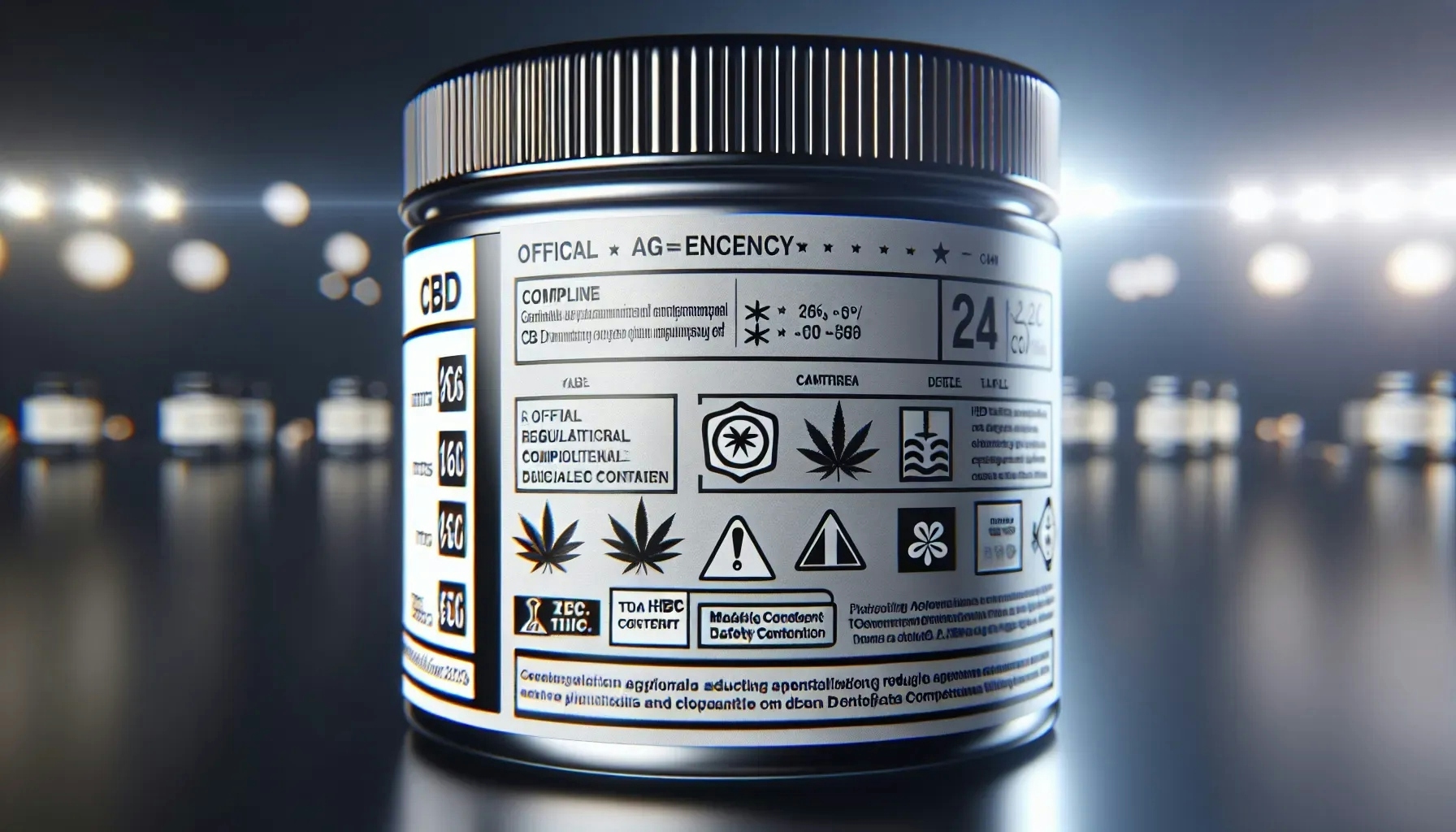The world of CBD products is a rapidly expanding market, with new products and brands emerging daily. However, this growth comes with a complex web of regulations that manufacturers and retailers must navigate. This blog post aims to shed light on the regulatory compliance for CBD products, providing a comprehensive guide for those in the industry.
Understanding the Basics of CBD Regulation
CBD, or cannabidiol, is a compound found in cannabis and hemp. While it doesn't produce the "high" associated with THC, it has gained popularity for its potential therapeutic benefits. However, the legal status of CBD products is a complex issue, with regulations varying by state and even by product type.
In the United States, the Farm Bill of 2018 legalized hemp and hemp-derived products, including CBD. However, the bill stipulates that these products must contain less than 0.3% THC. Products that exceed this limit are classified as cannabis products, which are subject to different regulations.
The Food and Drug Administration (FDA) also plays a significant role in CBD regulation. The FDA has approved one CBD product, a prescription drug product to treat two rare, severe forms of epilepsy. However, the FDA has not approved CBD for use in dietary supplements or foods sold across state lines.
Navigating State Laws and Regulations
While federal law provides a broad framework for CBD regulation, state laws can vary significantly. Some states have embraced the CBD boom, passing laws that allow for the broad use of CBD products. Others have imposed strict regulations, limiting the types of CBD products that can be sold and who can sell them.
For example, in California, CBD can be added to food and beverages, and retailers do not need a specific license to sell CBD products. In contrast, New York State has imposed stricter regulations. Here, CBD cannot be added to food and beverages, and retailers selling CBD products must obtain a Cannabinoid Hemp Retailer License.
Given this patchwork of state laws, it's crucial for CBD businesses to understand the regulations in each state where they plan to sell their products. This includes not only the laws around selling CBD products but also regulations regarding the production and testing of these products.
Labeling and Marketing CBD Products
Proper labeling and marketing are crucial aspects of regulatory compliance for CBD products. Misleading or inaccurate labels can lead to significant penalties, including product seizures and fines.
The FDA has issued specific guidance on labeling CBD products. This includes requirements for listing the amount of CBD per serving and the total amount of CBD in the product. Labels must also include a list of ingredients, the name and address of the manufacturer, and a disclaimer that the product has not been evaluated by the FDA.
In addition to labeling requirements, CBD businesses must also be careful with their marketing claims. The FDA has warned companies against making unproven health claims about their CBD products. Businesses that make such claims could face enforcement action from the FDA.
Ensuring Quality and Safety
Ensuring the quality and safety of CBD products is another critical aspect of regulatory compliance. This includes testing products for potency and purity, as well as following good manufacturing practices.
Many states require CBD products to be tested by a third-party laboratory. These tests can confirm the amount of CBD in the product and check for contaminants like pesticides and heavy metals. Businesses should ensure they are working with a reputable lab and that they understand the testing requirements in each state where they sell their products.
Good manufacturing practices (GMPs) are another important aspect of ensuring product quality and safety. These are standards set by the FDA for the production and packaging of dietary supplements and food. While the FDA has not issued GMPs specifically for CBD products, many in the industry follow the GMPs for dietary supplements as a best practice.
Preparing for Future Changes
The regulatory landscape for CBD products is constantly evolving. As such, businesses must stay informed about changes to both federal and state laws.
One potential change on the horizon is the FDA's stance on CBD in dietary supplements and food. The agency is currently evaluating regulations for these products and has indicated that it may issue new rules in the future.
In addition to staying informed about regulatory changes, businesses should also consider seeking legal counsel. An attorney experienced in cannabis law can help navigate the complex web of regulations and ensure that a business remains in compliance.
The Importance of Compliance
Regulatory compliance is not just about avoiding penalties. It's also about building trust with consumers. By ensuring their products are safe, accurately labeled, and legally compliant, CBD businesses can build a strong reputation and gain a competitive edge in the market.
Compliance also paves the way for future growth. As the CBD market continues to evolve, businesses that prioritize compliance will be well-positioned to adapt to new regulations and seize new opportunities.
Navigating the Regulatory Landscape: A Must for CBD Businesses
The regulatory landscape for CBD products is complex and ever-changing. However, by understanding the basics of CBD regulation, navigating state laws, ensuring proper labeling and marketing, maintaining product quality and safety, and preparing for future changes, businesses can navigate this maze successfully. While challenging, regulatory compliance is a crucial step in building a successful and sustainable CBD business.

